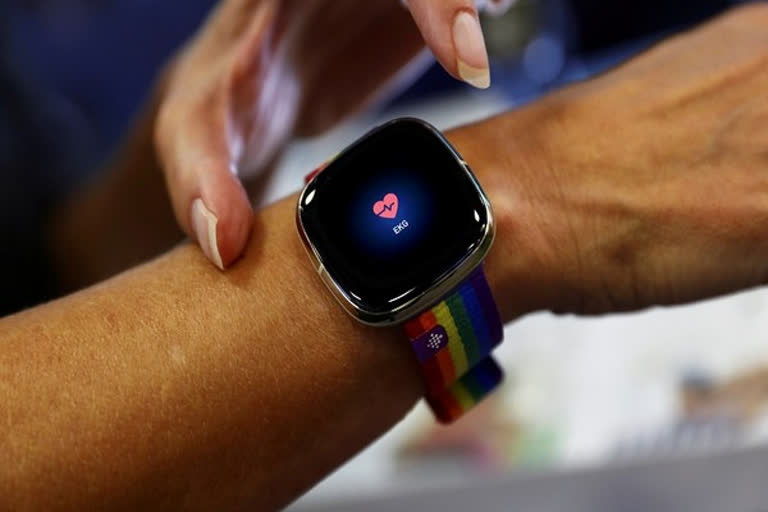New Delhi: Wearable devices can be used to monitor the onset of infectious disease like Covid-19, said a study compiled by 'Nature Research', a renowned medical and science journal.
The study analysed psychological and physical activity data from 32 individuals infected with Covid-19.
"Identified from a cohort of nearly 5,300 participants, and found that 26 of them (81 percent) had alterations in their heart rate, number of daily steps or time asleep," the study said.
Of these 25 cases of Covid-19 with detected psychological alterations for which we had symptom information, 22 were detected before (or at) symptom onset, with four cases detected at least nine days earlier, the study said.
"Using retrospective smartwatch data, we show that 63 percent of the Covid-19 cases could have been detected before symptom onset in real-time via a two-tiered warning system based on the occurrence of extreme elevations in resting heart rate relative to the individual baseline.
"Our finding suggested that activity tracking and health monitoring via consumer wearable devices may be used for the large-scale, real-time detection of respiratory infections, often pre-symptomatically," the study said.
Also read: England's NHS claims new blood test will spot more than 50 cancers
The approach of the study was, however, a general detection method and it can not distinguish infections with SARS-CoV-2 from those caused by other viruses (other than pre-symptomatic duration), since increased resting heart rate (RHR) is common to many respiratory infections including Covid-19 illness.
It said that other type of psychological measurements that are obtainable from wearable devices will be valuable for distinguishing illness caused by different infectious agents and could be used to increase diagnostic sensitivity and perhaps even predict illness severity and symptoms.
"Data on reported respiratory rates and blood oxygen saturation are expected to be particularly useful in Covid-19 predictions, although the disease is quite heterogeneous in its psychological presentation," the study said.
It further said that real-time monitoring by smartwatches is a passive form of testing that does not burden patient schedules and can serve as a high-resolution continuous screening to inform follow up testing and self-isolation.



